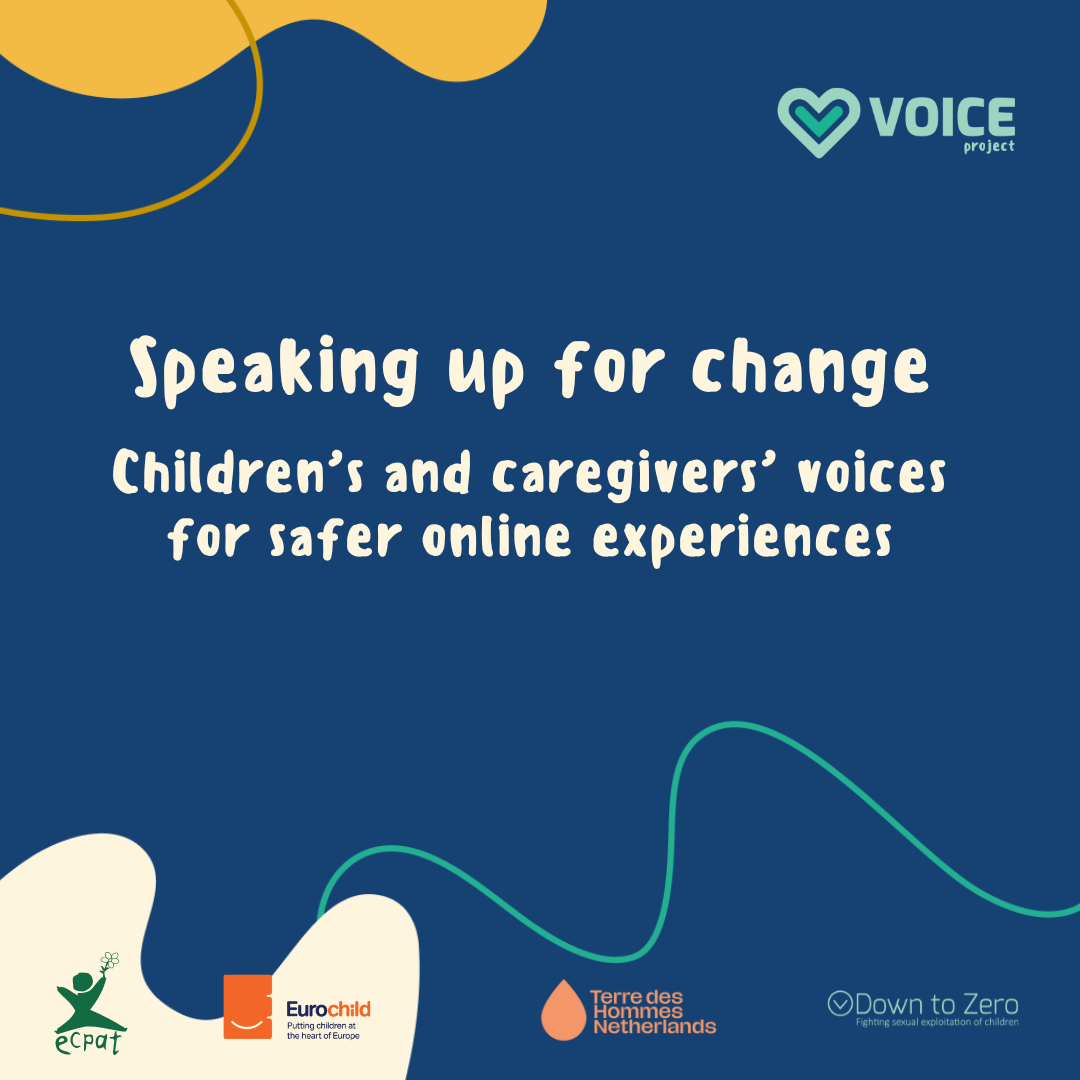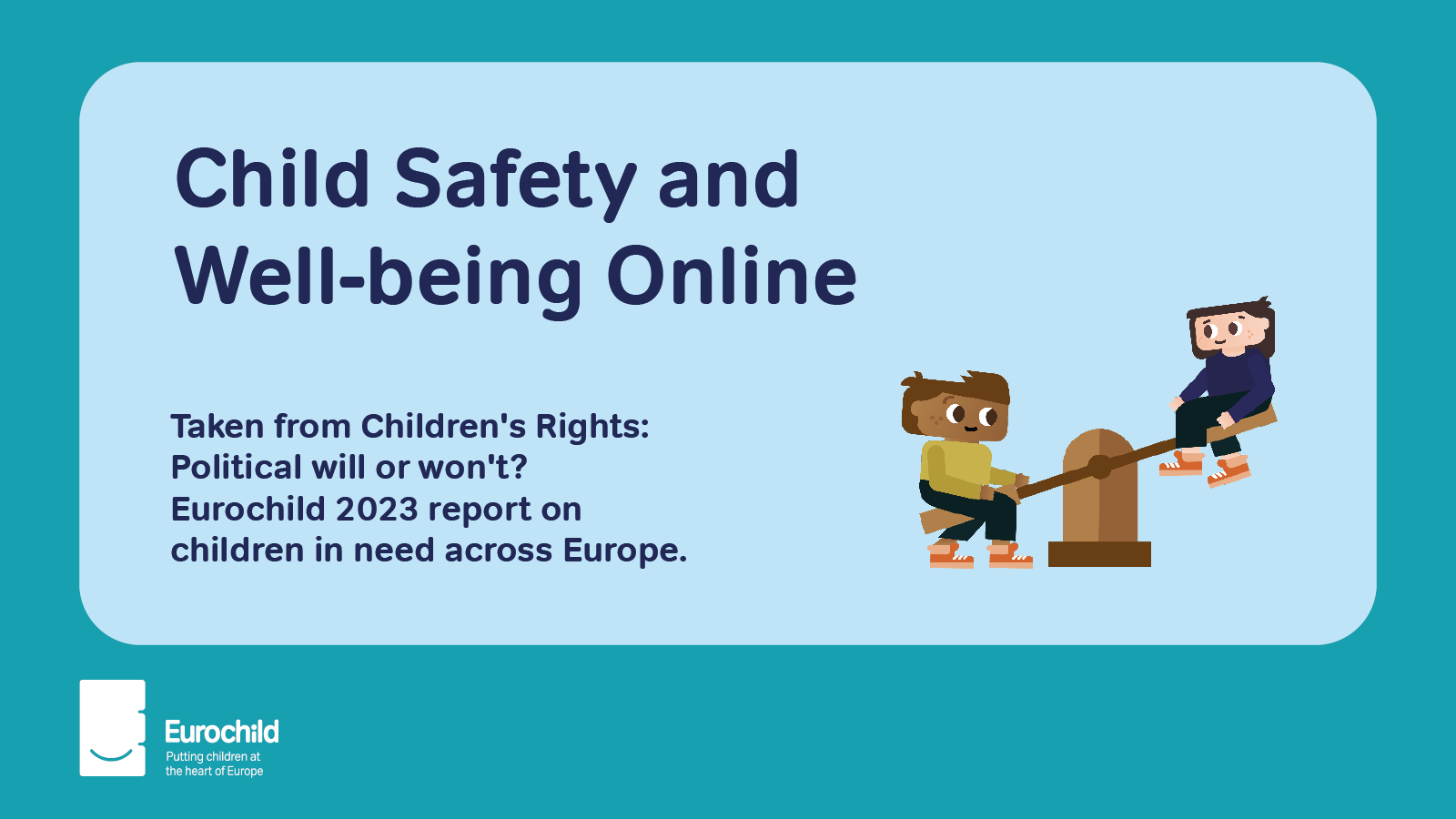Avoiding gaps in detecting and removing child sexual abuse online must be prioritised
Eurochild’s position on the proposed extension of the temporary derogation of the ePrivacy Directive, to allow the continuation of voluntary detection of child sexual abuse online.
The temporary derogation of some provisions of the ePrivacy Directive adopted in 2021 has bene allowing since then the voluntary detection of child sexual abuse by online service providers, i.e., Whatsapp, Gmail, etc. Due to expire on 3rd August 2024 and without an agreement on the Regulation to combat child sexual abuse (‘CSAR’) proposed as a substitute, this extension is key to avoid any gaps in the protection of children online.
We positively welcome the Commission’s proposal for an extension, which could avoid a pause in the exercise of detecting and removing child sexual abuse material. We have seen what a devastating impact detection gaps can have on identifying child sexual abuse cases, when in the 18 weeks gap to secure the Temporary Derogation from the E-privacy Directive in 2021, there was a 58% drop in reports from EU accounts. Along these lines, Eurochild recently signed together with 53 NGOs and platforms a statement calling for a swift adoption of the temporary derogation of the ePrivacy Directive.
Child sexual abuse is a serious violation of children’s rights as laid down by the UN Convention on the Rights of the Child (UNCRC). Firstly, because every child has the right to be protected from all forms of abuse. Secondly, because the disclosure of personal information and material (i.e., sexual abuse photos or videos) is a major violation of the child’s right to privacy. Finally, because of the long-lasting effects on their wellbeing and development, which hinders their capacity to fully participate in society. Children’s rights to development, participation, protection and privacy are safeguarded by the UNCRC, by which all 27 EU Member States are bound. Children’s rights should be given the same weight as any other fundamental right.
Key recommendations:
- Adopt a time extension of at least 2 years, to allow for the necessary time for a child-rights based long-term framework to be negotiated, adopted and implemented.
- Allow the possibility of further extensions after the new expiry date, to ensure a fall back mechanism that enables child protection against child sexual abuse in all scenarios.
- The extension must retain the same scope, including known and unknown child sexual abuse materials and grooming, in compliance with the UNCRC provisions on children’s right to protection from all forms of abuse.
We welcome the EU institutions’ commitment to safeguard children’s right to be protected from all forms of abuse. We applaud the swift agreement found by Council of the EU to extend the derogation, in full scope, for three years. Similarly, we commend the preservation of the full scope of the Interim, including grooming, by the LIBE Committee at the European Parliament. Ahead of inter-institutional negotiations, we now call on the Council and Parliament to swiftly agree on an extension that guarantees the detection and removal of all child sexual abuse material until a permanent Regulation is in force. We cannot afford putting children at risk of losing on protection from sexual abuse online.




